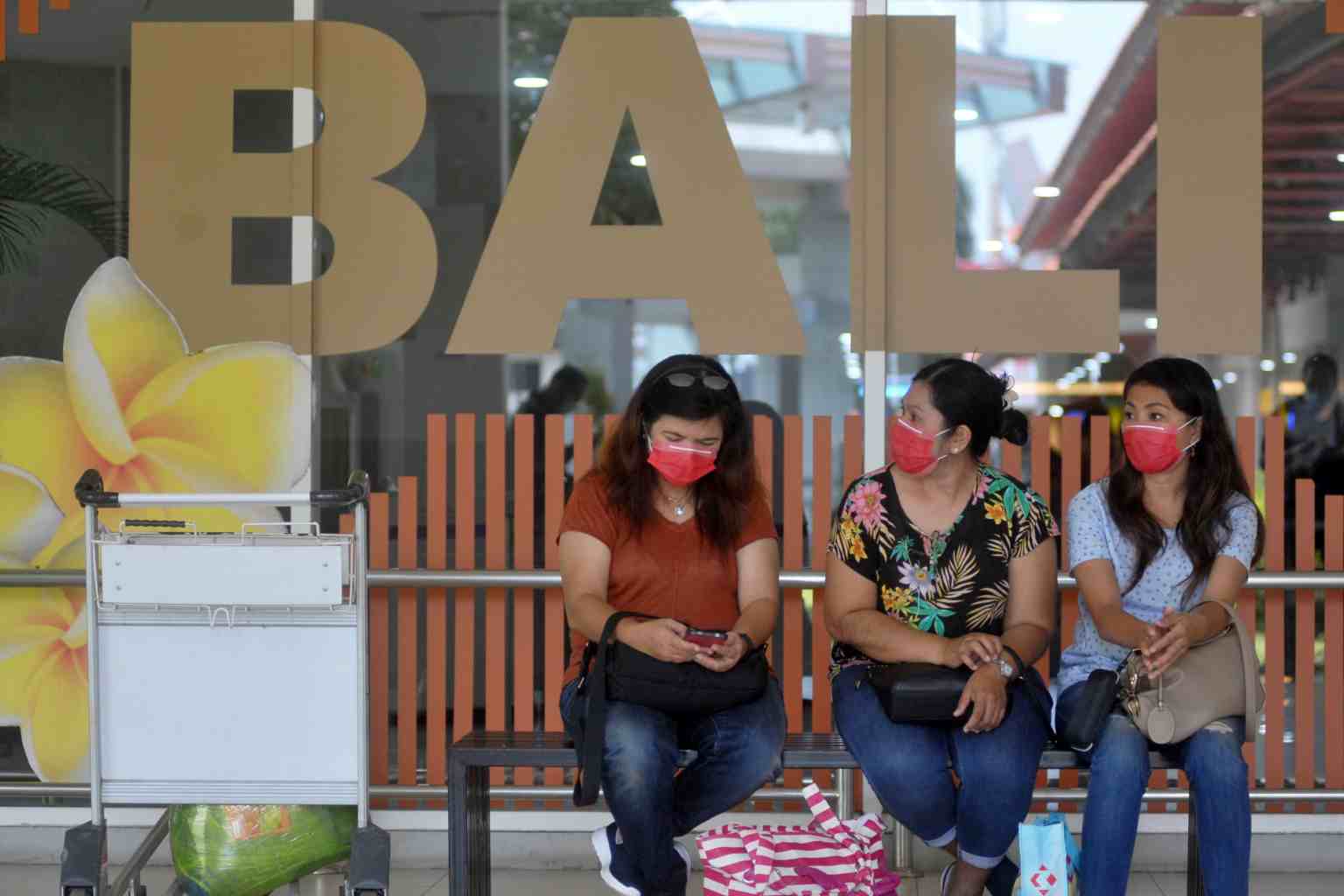Coronavirus: Indonesia reports highest daily increase in cases as Jokowi laments social distancing not taken seriously
Sign up now: Get insights on Asia's fast-moving developments

Passengers wear protective masks at a domestic departure terminal at Ngurah Rai International Airport in Bali, on March 13, 2020.
PHOTO: REUTERS
Follow topic:
JAKARTA - Indonesia on Thursday (March 19) reported 82 new coronavirus cases, the biggest daily increase for the country, as President Joko Widodo expressed regret that many in the capital city have shrugged off social distancing measures.
The total number of confirmed infections now stands at 309, said health ministry official Achmad Yurianto, adding that the number of deaths rose by six to 25, the majority of which were in Jakarta.
Provinces such as West Java, East Java and the Riau Islands also reported new cases, while 15 patients had been discharged.
Provinces such as West Java, East Java and the Riau Islands also reported new cases, while 15 patients had been discharged.
"Almost all of them (who died) had pre-existing conditions: diabetes, hypertension, coronary heart disease… obstructive lung disease. Many were aged between 45 and 65," said Mr Achmad.
The rise in fatalities comes as Mr Joko said that the country's social distancing measures have not been taken seriously by many Jakarta residents, who took advantage of the work-from-home and study-at-home regime to visit beaches and other tourist sites.
"The study-at-home, work-from-home, do-prayer-at-home measures should not be seen as an opportunity to go on holidays," Mr Joko, popularly called Jokowi in Indonesia, said on Thursday at the start of a meeting with ministers to tackle the Covid-19 pandemic.
The measures, announced last Saturday, saw the Jakarta provincial government close all schools in the city of over 10 million people for two weeks. Popular tourist sites such as the Taman Impian Jaya Ancol theme park and the National Monument were also closed, starting that same day.
But it did not stop some Jakarta residents from travelling out of the city.
"I noticed people in the past week had flocked to Carita Beach (two hours' drive from Jakarta) and Puncak (mountain resort in nearby Bogor), which both saw a larger number of visitors.
"Crowds pose an increased risk in spreading Covid-19," Mr Joko warned.
He instructed the Covid-19 task force to use rapid tests to allow early detection of the coronavirus infections. He also hoped that the testing tools will be available widely in a number of health facilities.
"I'm requesting that the rapid test kits be further increased, while places to conduct the test are also expanded, involving hospitals run by the government, state-owned enterprises, regional governments, the Indonesian military, the national police, the private sector and research agencies as well as higher education institutions recommended by the health ministry," he said in a teleconference meeting from Merdeka Palace in Jakarta.
Earlier on Wednesday, Mr Achmad said that the rapid tests will take blood serum as a sample and they can be carried out by clinical laboratories nationwide, giving greater access to many more people so that early detection will be possible.
Up to now, Indonesia has been using polymerase chain reaction (PCR) tests and genome sequencing to detect the coronavirus infections, requiring nasal and throat swabs as well as samples of sputum.
With Indonesia, the world's fourth most-populous nation of around 267 million people, reporting only some 300 cases, there have been suspicions that many infected people have gone undetected. The archipelago's most populous island is Java, where Jakarta is located.
The president also ordered the task force to ensure the readiness of the appointed referral hospitals to handle Covid-19 patients, while also preparing for other hospitals when necessary.
Some facilities, such as an athlete's village in Kemayoran, Central Jakarta, and hotels run by state-owned enterprises, can also be designated as the sites of quarantine and treatment, while the development of another quarantine facility on Galang Island in Riau Islands will be accelerated, Mr Joko said.
He reiterated on Thursday: "Three important points need to be conveyed (to the public) repeatedly.
"Reduce mobility... continue social distancing steps, and avoid crowds, as they increase the risk of contracting (the disease)."
While some have travelled out of Jakarta, others who stay put have restricted their movements, Jakarta Mass Rapid Transit ridership figures released on Thursday showed.
From the average 100,000 passengers per day, it slipped to 27,269 on March 16; 31,628 on March 17; and 28,565 on March 18.
Passengers using the commuter train service into and out of Jakarta have fallen to about 700,000 a day from the normal 1.2 million a day.

